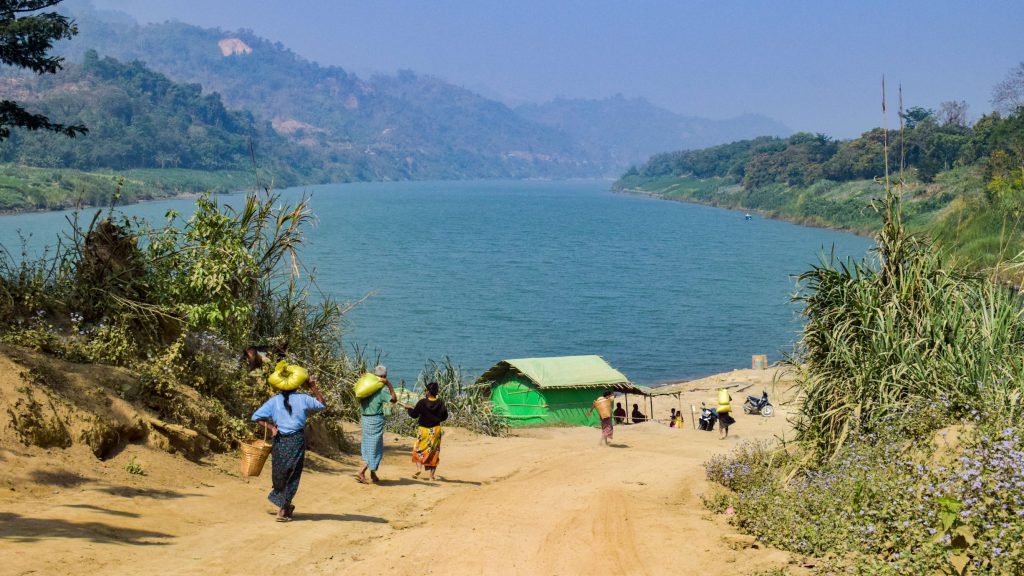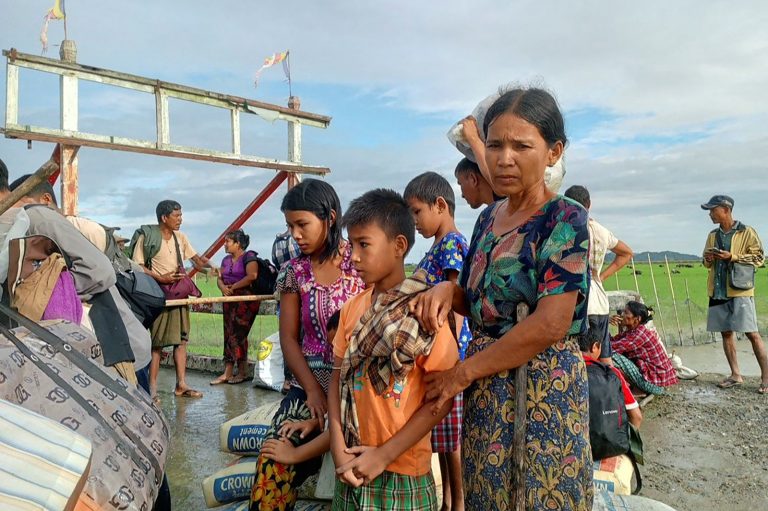As the nation focuses on the fight against the coronavirus, Chin villagers are being killed in military operations that are far deadlier than the spread of COVID-19.
By SALAI SH LIAN | FRONTIER
FOR THE residents of Chin State’s southern Paletwa Township, the intensifying conflict between the Arakan Army and the Tatmadaw represents a much deadlier and more urgent threat than COVID-19. By bringing the fight to Chin villages, innocent lives are being placed at unnecessary risk.
Although the coronavirus has ostensibly killed only four civilians in Myanmar as of April 16, in the past month alone 28 Chin civilians have died as a result of fighting that only seems to escalate, despite domestic and international calls for a ceasefire amid the COVID-19 pandemic.
Amid this raging conflict, the government also continues to impose a mobile internet ban in Paletwa as well as eight townships in Rakhine State. Domestic and international non-government organisations as well as the United Nations have called for an end to the blanket suspension of mobile internet services and for the government to grant media, humanitarian and human rights organisations immediate access to the area.
The government has not only disregarded such calls, but in the early hours of April 14 it cut telephone connections in Paletwa for the second time this month. This heightened communications blackout, which remains in effect at press time, imperils communities that are already starved of information, particularly during the COVID-19 emergency. It also hampers humanitarian aid operations and the work of human rights monitors.
Still, it hasn’t stopped news of recent deadly attacks emerging from southern Chin State. In one of several offensives by Tatmadaw fighter jets, on April 7, seven civilians were killed in Paletwa’s Hnan Chaung village. The innocent victims included two children, a nursing mother and a baby; the charred remains of the mother, her arms folded protectively around her three-year-old, were found in a house that had burned to the ground. This came a week after an air strike on Bawngwa village on March 31 that injured a number of civilians. Earlier air assaults on March 14 and 15 killed 21 civilians, including several children.
Such operations constitute either indiscriminate attacks or the direct targeting of civilians, which is prohibited under the conventions that are meant to govern armed conflict. The Geneva Conventions, which Myanmar ratified in 1992, specifically prohibit “violence to life and person, in particular murder of all kinds” of civilians and persons no longer taking an active part in hostilities, as well as the “wilful killing” of protected persons. The airstrikes on villages in Paletwa, and the killing of innocent civilians, can be regarded as serious violations of international humanitarian law and could amount to war crimes under the Rome Statute, which underpins the International Criminal Court.
It is not just the Geneva Conventions that the Tatmadaw and the government may be breaching in their campaigns in southern Chin State. United Nations Security Council resolutions 1265 and 1296 stipulate that civilians are protected during armed conflict and condemn the deliberate targeting of civilians. Resolution 1265 also emphasises “the responsibility of States to end impunity and to prosecute those responsible for genocide, crimes against humanity and serious violations of international humanitarian law”.
In 1991 Myanmar also ratified the UN Convention on the Rights of the Child, recognising “that every child has the inherent right to life. This enjoins Myanmar to ensure to the “maximum extent possible the survival and development of the child”. The recent deaths of children suggest it may be flouting its obligations under this convention as well.
The focus now should be on de-escalating the conflict to protect civilians. Although the Association of Southeast Asian Nations could play a key role in this regard, it has been reluctant to become substantively involved. This is a missed opportunity for the bloc to stop the escalating violence and save lives. ASEAN could couple its humanitarian initiatives with engagement to address the root causes of violence, using its good offices to seek a solution to a crisis that is affecting countries beyond Myanmar’s borders because of an outflow of refugees, particularly to India and Malaysia, an ASEAN member.
As the international community focuses on urgent measures to protect people against a deadly virus, it must also work to bring an end to the killing of innocent civilians in air strikes and other military operations that are destroying communities and may amount to war crimes under international law. This is the demand of more than 130 civil society organisations in Myanmar and abroad, which have called for the immediate protection of civilians in armed conflict.
Because of the continued deadly attacks in southern Chin State, the ill-equipped hospitals and small number of health workers in Paletwa are devoting their resources and energies to treating the wounded rather than preparing for an outbreak of COVID-19. This is in a state that, even before the conflict, was already the least developed in Myanmar.
Moreover, by uprooting villagers and making them flee to cramped camps for the internally displaced, the fighting is preventing more than 9,000 people from practising social distancing. This increases their risk of exposure to the coronavirus, while privation and trauma caused by conflict and displacement increases the chance that they will die of the resulting disease.
Meanwhile, the continued telecommunications blackout prevents communities from receiving vital information on how to defend against the virus. Together with the dangerous nature of travel in the area – both the AA and the Tatmadaw regularly detain civilians – the blackout would also hamper efforts to deliver outside help in the event of a serious outbreak of COVID-19.
Measures to combat the coronavirus in Paletwa would be almost pointless without an immediate halt to the conflict. Until this happens, people there will remain more frightened of the immediate and visible threat of bullets and bombs than the invisible threat of the virus.







